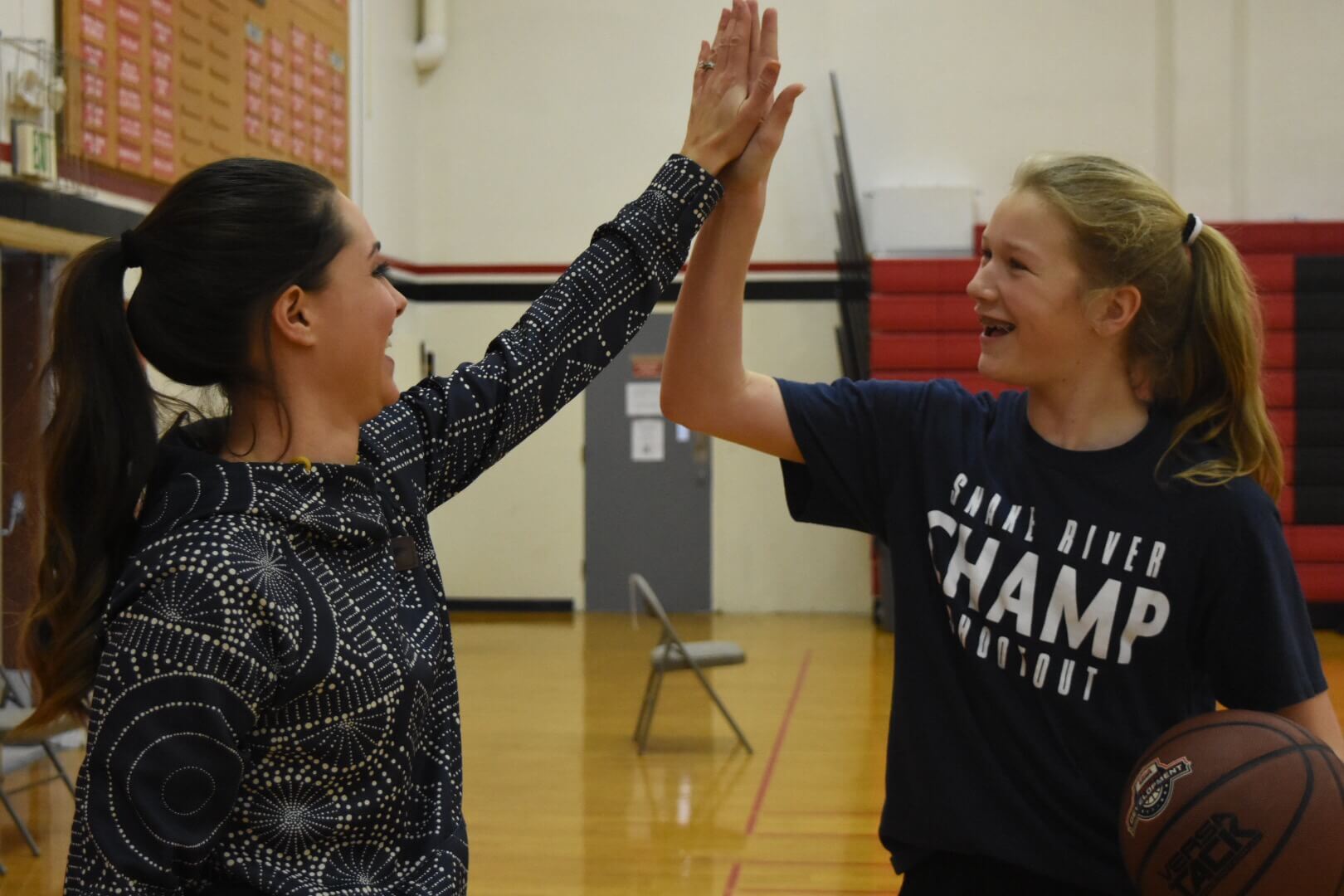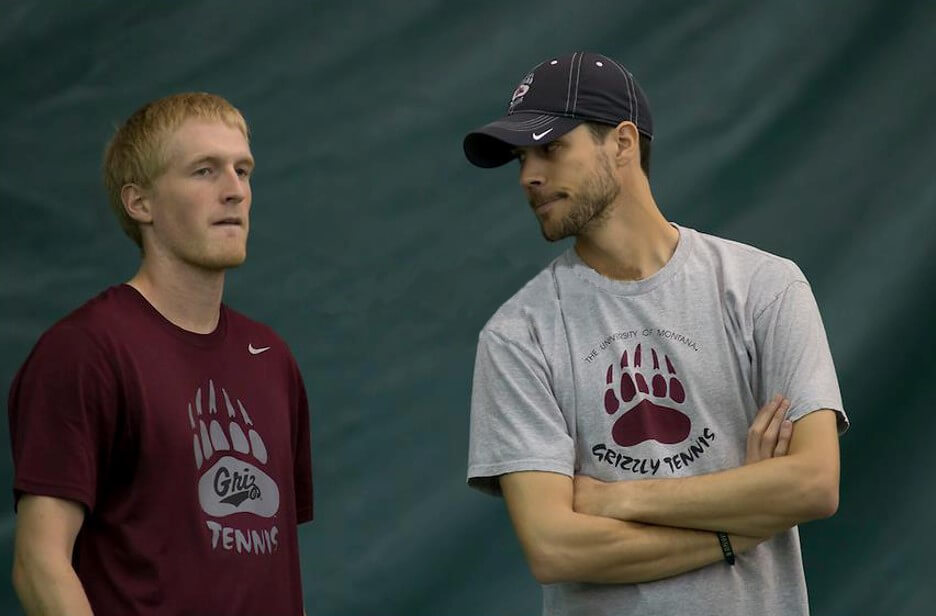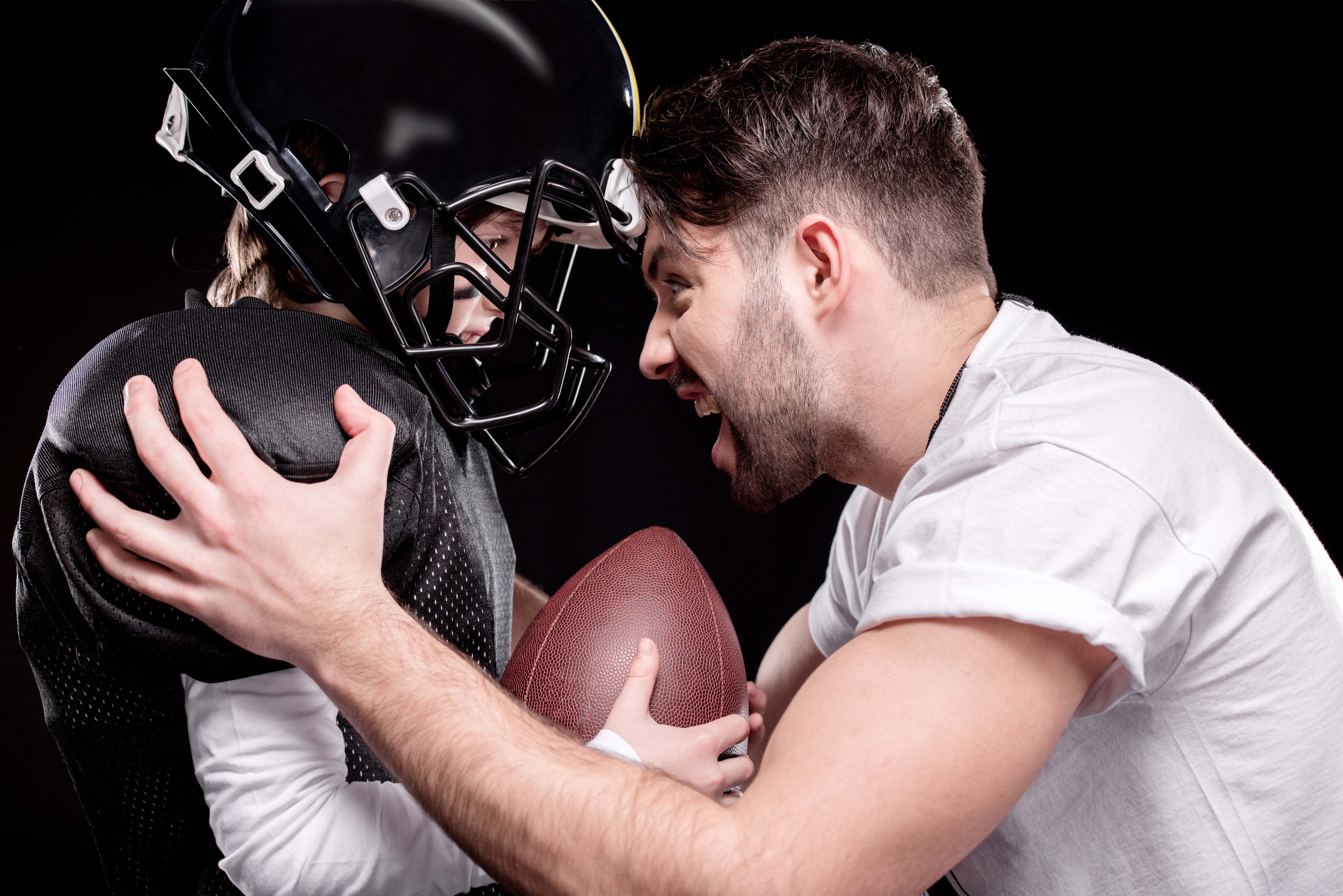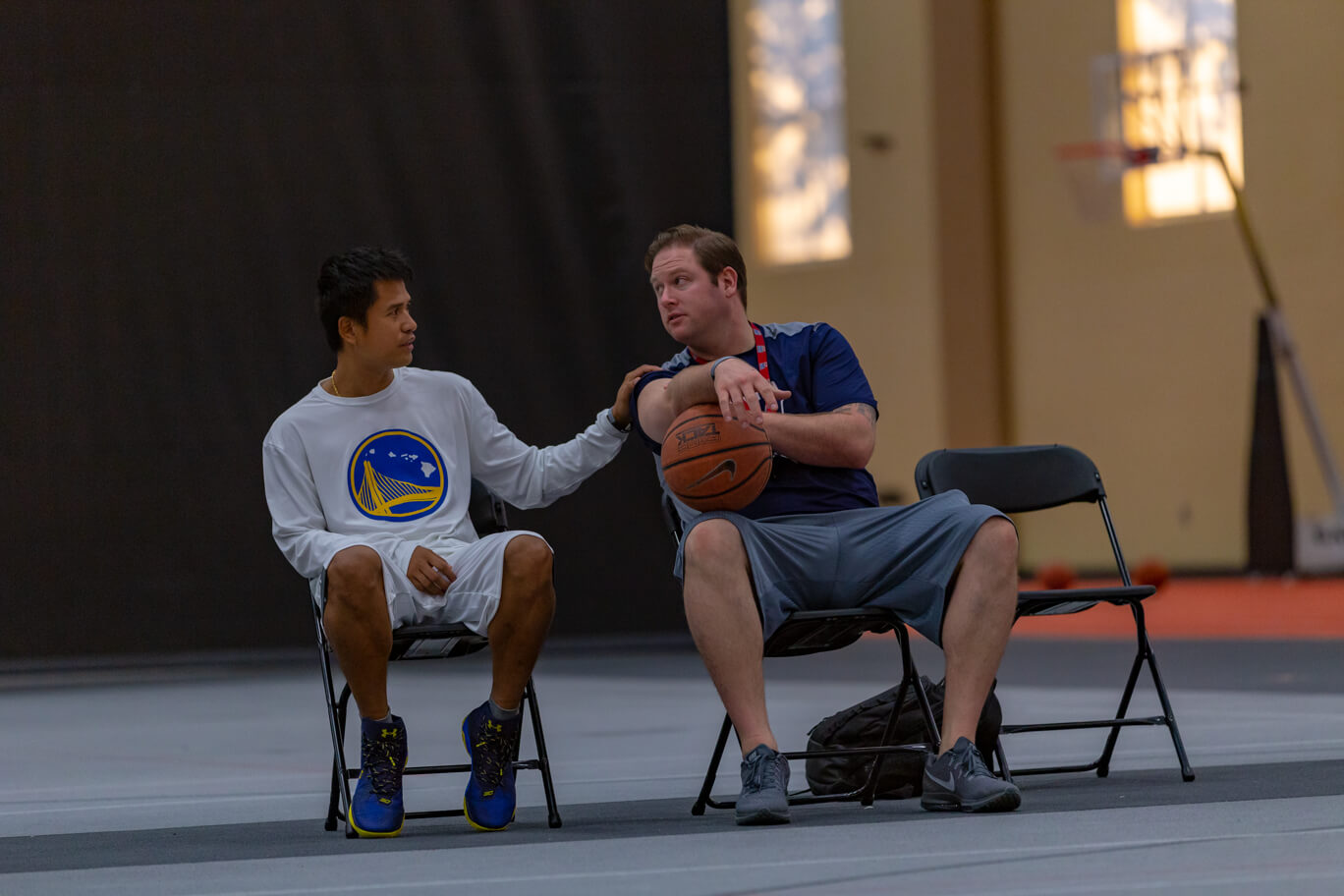(3 Minute Read)

The coach-athlete relationship stands as a central pillar in the quest for understanding how interpersonal dynamics affect athletic performance. Indeed, the interactions between coaches and athletes are widely recognized as an important antecedent to both positive and negative sport outcomes (Choi, Cho, & Huh, 2013; Lafreniere, Jowett, Vallerand, & Carbonneau, 2011; Poczwardowski, Barrot, & Jowett, 2006). Moreover, coach-athlete relationships are acknowledged as important in contexts ranging from youth sports (Smoll, & Smith, 2006) to elite international competition (Jowett & Cockerill, 2003). The purpose of this article is to explore two important aspects of the coach-athlete relationship that can inform coaching practice.
Nature of the Coach-Athlete Relationship
For many athletes, the coach-athlete relationship shapes their entire athletic experience (Poczwardowski, Barott, & Henschen, 2002). Not only does this interpersonal relationship affect performance outcomes, but it also can influence several psychological processes (Jowett & Poczwardowski, 2007). Interestingly, this interplay between relational process and athletic outcomes is not uni-directional. Instead, it is a bidirectional phenomenon. Coach-athlete relational quality influences athletic outcomes and athletic outcomes influence the relationship. For example, a coach-athlete relationship may be viewed more positively if it is highly successful (i.e. winning is a common result) rather than unsuccessful. Alternatively, in some cases, where neither the coach nor the athlete experience success or attain achievement, the relationship may still be viewed favorably. Further still, the dyad that functions well interpersonally may be more likely to achieve greater performance outcomes. This could lead to even more favorable relationship dynamics, creating a positive cycle. A similar process could also flow in the opposite direction (i.e. poor relational dynamics could adversely affect athletic performance).

Role of the Coach
In the world of sport there are few individuals who have as great an impact on athletes as their coaches. Because of the inherent power differential in these sporting dyads, the coach may play a more critical role in the overall quality of the relationship. Indeed, both supportive and unsupportive coaching behaviors are linked with the quality of the partnership (Nicholls, Levy, Jones, Meir, Radcliffe, & Perry, 2016). Such behaviors can affect athletes’ perceptions of the coach-created motivational climate, which is also connected to relational quality (i.e. greater task-involving, or cooperative, climates are more strongly related to interdependence; Olympiou, Jowett, & Duda, 2008). This conclusion aligns with Martens (2014) recommendation that coaches should adopt a more cooperative style when interacting with athletes. Furthermore, these coaching behaviors are likely to result in increased levels of athlete satisfaction (Baker, Yardley, & Cote, 2003) which also has been linked to the coach-athlete relationship (Jowett & Ntoumanis, 2004). Unfortunately, not all coaches engage in behaviors that will foster a healthy dyad.

Gearity and Murray (2011) identified five themes of poor coaching that resulted in negative psychological effects in athletes: poor teaching by the coach, uncaring, unfair, inhibiting athletes’ mental skills, and athlete coping. Moreover, cases of emotional abuse have been documented even at the elite levels of sport (Stirling & Kerr, 2013) despite the fact that one might expect only the most qualified coaches would hold these positions. One potential explanation for the prevalence of these behaviors is how coaches view leadership.

Thankfully, there seems to be a shift toward a more athlete-centered paradigm in coaching leadership. Illustrating this point, Moen, Giske, and Hoigaard (2015) found that a majority of sampled coaches believe that their athletes expect involvement leadership while a lesser portion thought athletes wanted servant leadership. The distinction between these two styles is found in how the coach views his/her role. Involving athletes in the training process is generally considered a positive coaching behavior and so is allowing athletes to take responsibility for their own development (i.e. servant leadership). As such, coaches would do well to engage in leadership activities that focus on creating an environment characterized by supporting, respecting, and caring for their athletes.

Conclusion
It is essential for current and future coaches to understand the nature of the coach-athlete relationship as well as their role in nurturing a positive partnership with their athletes. Relationship-building is a dynamic process and, given how influential it is to athletes’ overall experiences, maybe something coaches should focus on as much, or more, than the usual technical/tactical considerations of the profession.
References
Baker, J., Yardley, J., and Cote, J. (2003). Coach Behaviors and Athlete Satisfaction in Team and Individual Sports. International Journal of Sport Psychology, 34, 226-239.
Choi, H., Cho, S., & Huh, J. (2013). The Association Between the Perceived Coach-Athlete Relationship and Athletes’ Basic Psychological Needs. Social Behavior and Personality, 41(9), 1547-1556.
Gearity, B.T. & Murray, M.A. (2011). Athletes’ experiences of the psychological effects of poor coaching. Psychology of Sport and Exercise, 12, 213-221.
Jowett, S. and Cockerill, I. (2003). Olympic medallists’ perspective of the athlete-coach relationship. Psychology of Sport and Exercise, 4, 313-331.
Jowett, S., & Poczwardowski, A. (2007). Understanding the Coach-Athlete Relationship.
Jowett, S. and Ntoumanis, N. (2004). The Coach-Athlete Relationship Questionnaire (CART-Q): development and initial validation. Scandinavian Journal of Medicine and Science in Sports, 14, 245-257.
Lafreniere, M., Jowett, S., Vallerand, R., and Carbonneau, N. (2011). Passion for coaching and the quality of the coach-athlete relationship: The mediating role of coaching behaviors. Psychology of Sport and Exercise, 12, 144-152.
Martens, R. (2014). Successful coaching. Human Kinetics.
Moen, F., Giske, R., and Hoigaard, R. (2015). Coaches’ Perceptions of how Coaching Behavior affects Athletes: An Analysis of their Position on Basic Assumptions in the Coaching Role. International Journal of Learning, Teaching and Educational Research, 11(1), 180-199.
Nicholls, A.R., Levy, A.R., Jones, L., Meir, R., Radcliffe, J.N., & Perry, J.L. (2016). Committed relationships and enhanced threat levels: Perceptions of coach behavior, the coach-athlete relationship, stress appraisals, and coping among athletes. International Journal of Sports Science and Coaching, 11(1), 16-26.
Olympiou, A., Jowett, S., and Duda, J. (2008). The Psychological Interface Between the Coach-Created Motivational Climate and the Coach-Athlete Relationship in Team Sports. The Sport Psychologist, 22, 423-438.
Poczwardowski, A., Barott, J.E., & Henschen, K.P. (2002). The Athlete and Coach: Their Relationship and Its Meaning. Results of an Interpretive Study. International Journal of Sport Psychology, 33, 116-140.
Poczwardowski, A., Barrot, J., and Jowett, S. (2006). Diversifying approaches to research on athlete-coach relationships. Psychology of Sport and Exercise, 7, 125-142.
Smoll, F. L., & Smith, R. E. (2006). Enhancing coach-athlete relationships: Cognitive-behavioral principles and procedures. The sport psychologist’s handbook, 19-37.
Stirling, A. and Kerr, G. (2013). The perceived effects of elite athletes’ experiences of emotional abuse in the coach-athlete relationship. International Journal of Sport and Exercise Psychology, 11(1), 87-100.

